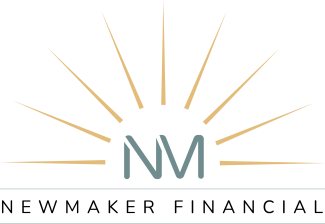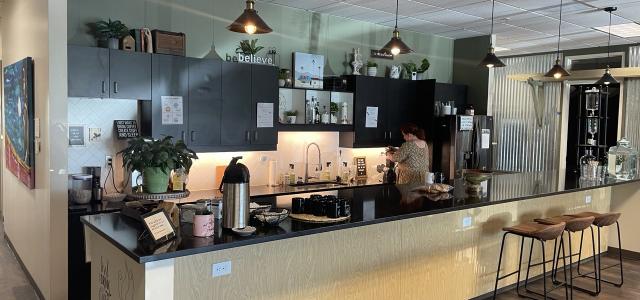When I first co-founded NewMaker Financial, money was tight. It was a hard reality to face; I had spent a decade working in finance making good money, and suddenly there wasn’t enough to go around. Every dollar now had a purpose-- and it took some adjusting. But every time I got some money, I would go out and buy fast food breakfast. There was every reason in the world not to do it—that money would have been better spent literally anywhere else, and I certainly wasn’t doing my health any good.
There was one reason to spend the money though: it made me feel normal. For some reason grabbing a McGriddle and some hash browns from the local Mickey D’s recharged my battery in a way nothing else could. For a time, it was my “splurge”, and it meant the world to me.
My wife, who was taking care of all the bills (and even giving me an allowance to live on) could have easily shamed me for this. But she trusted that I knew what was best for me, and understood that just because I was making little money didn’t mean that I had to be a model of self-denial in every scenario. In fact, had I become a model of self-denial, I probably would have burnt myself out, and wouldn’t be writing about my experience.
That’s the reality when it comes to budgeting. Being purposeful with our spending is important, but the leading authorities on budgeting devised an emotionless process where we track every dollar exhaustively, and live within the narrow world of frugality. For some of us, this works extremely well; for others, it does not work at all. If you’ve tried budgeting this way and failed, join the club! We meet on Thursdays.
That’s because there’s a thin line between frugality and, you know, shaming you for being an adult who spends your own money the way you want to. Growing up and getting a job allows us to spend money on a lifestyle we enjoy, it is literally the only reason we grow up and get jobs. Yet when we spend in a way that might be considered “frivolous” to some, we are treated as if we are bad with money. Consider the war against lattes, where some believe not making your coffee at home is a sin against nature.
We live in a consumer economy, and we all spend money in ways that might be considered “frivolous” by others on a daily basis. Yet the latte thing is everywhere. It’s as if we were all living in a financial Eden before Starbucks came and introduced the concept of financial instability. But I did some research and discovered that financial problems actually predate the inception of Frappuccino’s.
Fun Fact: The Great Depression is believed to have been
caused by people not making coffee at home, the fools.
Things like recessions happen - people get laid off and investments lose value. No amount of home brew is going to stop life from happening, and I’m sort of surprised we’ve spent this long pretending it can. To quote something my mom should have said: “Anyone who shames you for spending your money on things you like isn’t really your friend.”
I realize I’m being a bit unfair to the latte haters. The idea of frugality is a legitimate way to save and budget, and doing things like making your coffee at home can free up money for other, potentially more important things. The issue I have with this line of thinking is that it tends to discount discretionary spending (the spending that tends brings us the most joy) in favor of “essential” spending and savings. Sometimes it feels that if we like something, the act of budgeting wants to take it away from us. This is where the belt-tightening comes in, which is fine, but I’m going to let you in on a secret about budgeting.
Frivolous spending isn’t your enemy, burnout is. If we create a budget that makes us unhappy, we won’t follow it. And good for us, it’s like we are fighting for our right to party. Saying “we won’t consistently do things we don’t like” may seem obvious, but how often do we create idealized, paper versions of ourselves that only spend “responsibly”, only to have the whole plan fall apart in the execution phase?
Non-essential spending may get a bad rap, but it’s many things aside from non-essential. It’s a way we express ourselves, a way we enjoy ourselves, and sometimes a way we identify ourselves. It’s non-essential if you only consider the first couple stages of Maslow’s Hierarchy of Needs, once you realize non-essential spending is part of how we self-actualize, it suddenly becomes a bit more essential. In other words if our budget doesn’t allow us to be happy, then why bother?
So what’s the alternative? In the next article, “Budgeting for the 73%”, we begin to look at budgeting in a different way, one with a whole new style. But before any of us truly take up budgeting, it’s good to remember that at the heart of the matter is a balance between responsible spending, and the kind of spending that makes you happy.
And if buying lattes makes you happy, then let no one shame you. It is your money, after all.
*Content in this material is for general information only and not intended to provide specific advice or recommendations for any individual.

